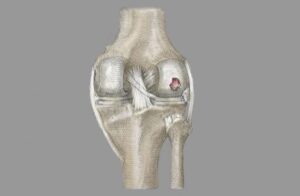Ambulatory Surgery Centers (ASCs) play a vital role in providing efficient and cost-effective healthcare services. However, like any other healthcare facility, ASCs encounter challenges related to claims and billing denials. Understanding the common denial reasons in ASC and implementing effective solutions is crucial to ensure financial stability and maintain the highest standards of patient care. In this article, we’ll explore some prevalent denial reasons specific to ASCs and provide actionable solutions to address them.
Common Denial Reasons in ASC:
- Incomplete Documentation: One of the primary reasons for claim denials in ASCs is incomplete documentation. Missing or insufficient information can lead to claim rejections.
- Coding Errors: Accurate medical coding is paramount in ASC billing. Errors in code selection or incorrect application of codes can result in claim denials.
- Inaccurate Patient Information: Incorrect patient demographics, insurance details, or policy numbers can lead to claim rejections.
- Lack of Authorization: Many insurance plans require prior authorization for certain procedures. Failure to obtain proper authorization can result in claim denials.
- Timeliness of Claims: Submitting claims past the insurer’s filing deadlines can result in denials. Timely submission is crucial.
- Non-Covered Services: Some procedures or services may not be covered by certain insurance plans. ASCs should verify coverage before performing the procedure.
Effective Solutions for ASC Denial Management:
- Comprehensive Documentation: Ensure that all patient records and procedure notes are complete, accurate, and compliant with coding guidelines. Clear documentation can help in addressing denials promptly.
- Coding Accuracy: Employ certified coders who are well-versed in ASC-specific coding. Regular audits of coding practices can help identify and rectify errors.
- Eligibility Verification: Verify patient insurance eligibility before the procedure. Ensure that patients are aware of their financial responsibilities.
- Prior Authorization: Establish a streamlined process for obtaining prior authorizations. Timely communication with payers is crucial to avoid denials related to authorization.
- Claims Submission: Create a system that ensures timely claims submission. Track filing deadlines and adhere to them rigorously.
- Clear Communication: Maintain open lines of communication with insurance companies. Promptly respond to requests for additional information or clarification.
Automation and Technology:
Consider implementing healthcare management software that offers automation features such as real-time eligibility verification, claims scrubbing, and denial analytics. These tools can streamline ASC operations, reduce errors, and enhance revenue cycle management.
Staff Training and Education:
Invest in ongoing training for your ASC staff, including coders, billers, and administrative personnel. Staying updated with industry changes and best practices can significantly reduce denial rates.
The Importance of Denial Analysis:
In addition to addressing immediate denial reasons, it’s essential for ASC to conduct a thorough analysis of denial trends. This ongoing review helps identify recurring issues and opportunities for improvement. By categorizing and tracking denials by their root causes, ASCs can implement targeted solutions to reduce the likelihood of future denials.
Collaboration with Payers:
Maintaining a positive working relationship with insurance payers can also be instrumental in addressing denial reasons. Regular communication and collaboration can lead to a better understanding of each payer’s specific requirements and preferences. This can help streamline the claims process and reduce the risk of denials stemming from misunderstandings or miscommunications.
Also Read:
Appeal Process:
Even with meticulous attention to detail, denials may still occur. ASCs should establish a well-defined and efficient appeal process. When a claim is denied, timely and well-documented appeals can often result in a successful resolution. Ensure that staff members are well-trained in the appeal process and have access to the necessary resources to support their efforts.
Patient Education:
While ASCs primarily deal with insurance companies, it’s also essential to educate patients about their insurance coverage and potential financial responsibilities. Clear communication with patients about what is covered and what isn’t can help prevent misunderstandings and reduce denials related to patient responsibilities.
Continuous Improvement:
Denial management in ASCs is an ongoing process. Regularly assess your denial rates, identify areas for improvement, and adapt your processes accordingly. ASCs that prioritize continuous improvement in denial management tend to see lower denial rates and better financial outcomes.
Conclusion:
Effectively managing denial reasons in an Denial Reasons in ASC (Ambulatory Surgery Center) is a multifaceted effort that involves documentation, coding accuracy, timely communication, and technology adoption. It also requires a commitment to ongoing training, collaboration with payers, and a structured approach to appeals. By addressing denials comprehensively and proactively, ASCs can optimize their revenue cycle, enhance patient satisfaction, and continue to provide high-quality healthcare services.









